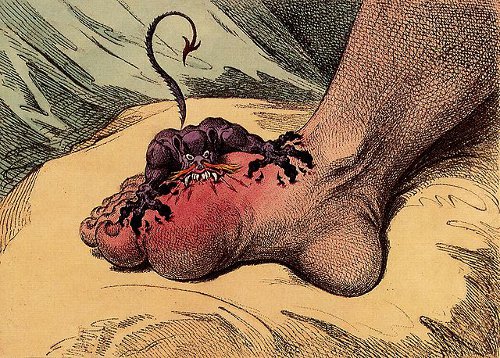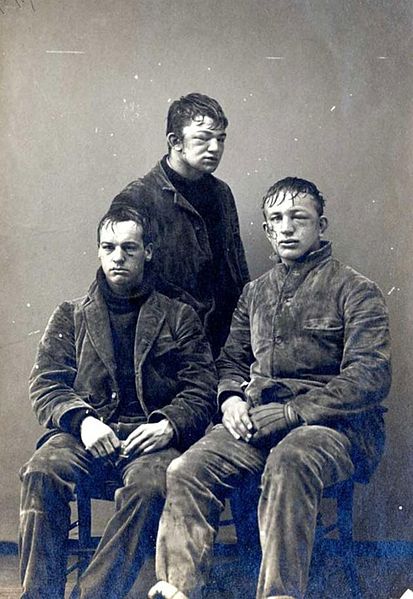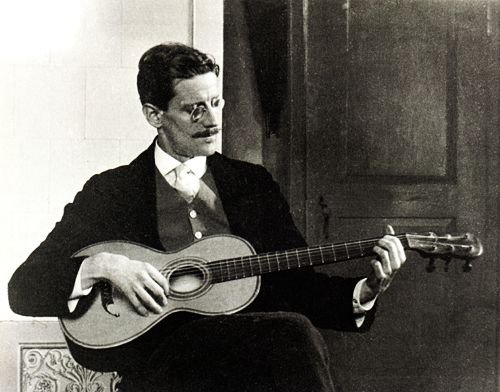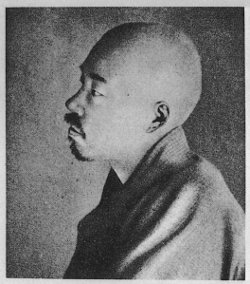
Driven from bed by pain in his toe one October night, Ben Franklin imagined a parley with his tormentor:
FRANKLIN. Eh! Oh! eh! What have I done to merit these cruel sufferings?
GOUT. Many things; you have ate and drank too freely, and too much indulged those legs of yours in their indolence.
FRANKLIN. Who is it that accuses me?
GOUT. It is I, even I, the Gout.
FRANKLIN. What! my enemy in person?
GOUT. No, not your enemy.
FRANKLIN. I repeat it, my enemy; for you would not only torment my body to death, but ruin my good name; you reproach me as a glutton and a tippler; now all the world, that knows me, will allow that I am neither the one nor the other.
GOUT. The world may think as it pleases; it is always very complaisant to itself, and sometimes to its friends; but I very well know that the quantity of meat and drink proper for a man, who takes a reasonable degree of exercise, would be too much for another, who never takes any.
FRANKLIN. I take — eh! oh! — as much exercise — eh! — as I can, Madam Gout. You know my sedentary state, and on that account, it would seem, Madam Gout, as if you might spare me a little, seeing it is not altogether my own fault.
GOUT. Not a jot; your rhetoric and your politeness are thrown away; your apology avails nothing. If your situation in life is a sedentary one, your amusements, your recreation, at least, should be active. …
FRANKLIN. Oh! oh! — for Heaven’s sake leave me! and I promise faithfully never more to play at chess, but to take exercise daily, and live temperately.
GOUT. I know you too well. You promise fair; but, after a few months of good health, you will return to your old habits; your fine promises will be forgotten like the forms of the last year’s clouds. Let us then finish the account, and I will go. But I leave you with an assurance of visiting you again at a proper time and place; for my object is your good, and you are sensible now that I am your real friend.
As the dialogue shows, Franklin had understood the risks he was incurring — at 28 he had written in Poor Richard’s Almanack:
Be temperate in wine, in eating, girls, and slouth;
Or the Gout will seize you and plague you both.
But he accepted the consequences. Three years before his death he wrote, “People who live long, who will drink of the cup of life to the very bottom, must expect to meet with the usual dregs, and when I reflect on the number of terrible maladies human nature is subject to, I think myself favoured in having to my share only the stone and the gout.”








